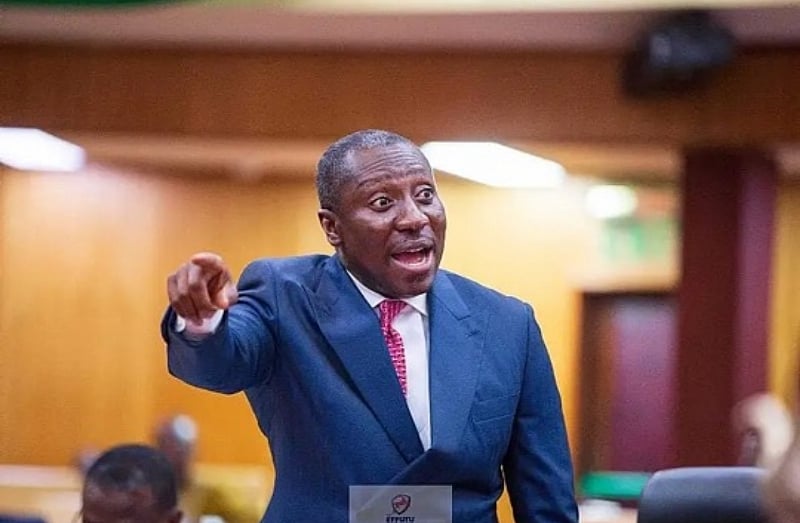The nomination of seven new justices to the Supreme Court by President John Dramani Mahama has ignited a firestorm of controversy, particularly within the opposition New Patriotic Party (NPP). Minority Leader Alexander Kwamena Afenyo-Markin has spearheaded the criticism, accusing Mahama of orchestrating a clandestine plot to manipulate the Constitution and pave the way for an unprecedented third term in office. This move, according to Afenyo-Markin, represents the first tangible step in a long-held NDC strategy to circumvent the two-term presidential limit and reinstate Mahama as their candidate in the 2028 elections.
Afenyo-Markin’s accusations hinge on the belief that Mahama, advised by influential figures within the NDC, intends to use the newly appointed justices to reinterpret the constitutional provision limiting presidential terms. This, he argues, is a calculated maneuver to overturn the established legal precedent and create a loophole for Mahama’s return. The NPP’s concerns stem from a deep-seated distrust of the NDC’s motives and a fear that packing the Supreme Court with sympathetic justices could undermine the integrity of the judicial system and threaten the very foundation of Ghana’s democracy.
The timing of these nominations, so close to the end of Mahama’s second term, has further fueled suspicions. Afenyo-Markin contends that the urgency with which these nominations are being pushed through suggests an ulterior motive beyond simply filling vacancies on the bench. He views the move as a preemptive strike designed to secure a favorable judicial landscape for Mahama’s future political ambitions. The NPP’s skepticism is further amplified by the lack of prior public discourse or consultation regarding the need for such a significant expansion of the Supreme Court.
The NPP’s apprehension regarding potential constitutional manipulation extends beyond the issue of presidential term limits. They express broader concerns about the potential erosion of democratic checks and balances should the Supreme Court become unduly influenced by political considerations. A judiciary perceived as partisan, they argue, could undermine public trust in the rule of law and create an environment conducive to political instability. Afenyo-Markin’s pronouncements reflect the NPP’s determination to resist any perceived attempts to undermine the constitutional order and safeguard the principles of democratic governance.
The nominated justices, whose backgrounds and judicial philosophies are now subject to intense scrutiny, face the daunting task of proving their impartiality and commitment to upholding the Constitution. Their decisions on future cases, particularly those with political implications, will be closely examined for any signs of bias or undue influence. The weight of these accusations and the intense political climate surrounding their appointments will undoubtedly add an extra layer of complexity to their judicial deliberations. Their ability to maintain judicial independence and resist political pressure will be crucial in preserving the integrity of the Supreme Court and restoring public confidence in the judicial system.
The unfolding controversy surrounding these Supreme Court nominations highlights the delicate balance between the executive, legislative, and judicial branches of government. It underscores the importance of transparency and public trust in the appointment process for judicial positions, particularly at the highest level. The accusations leveled by Afenyo-Markin and the NPP raise fundamental questions about the potential for political interference in the judiciary and the long-term implications for Ghana’s democratic future. The ensuing debate and the actions of the newly appointed justices will undoubtedly shape the course of Ghanaian politics and the interpretation of its Constitution for years to come.














